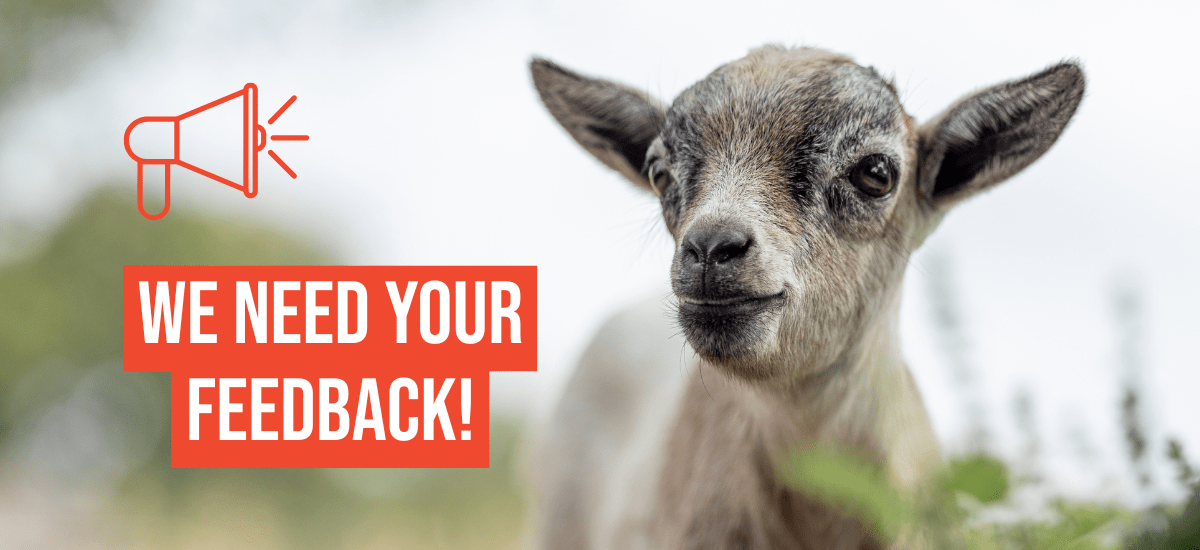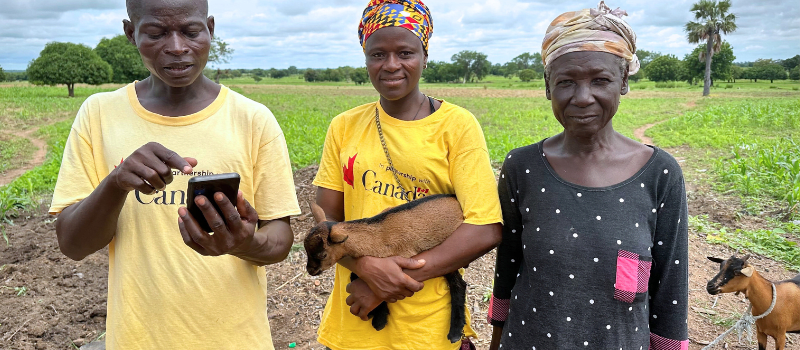As we mark International Mother Earth Day in 2024, the imperative to address environmental challenges within Kenya's dairy sector becomes ever more pressing. With over 1.8 million smallholder dairy farmers, the sector plays a vital role in the country's agricultural landscape. However, the management of livestock manure presents a daunting challenge, contributing to environmental degradation and greenhouse gas emissions. In this blog, we explore how composting is revolutionizing the dairy sector, fostering sustainability and resilience in the face of climate change.
 The science of composting
The science of composting
Composting is a bio-chemical process wherein microorganisms decompose organic waste matter to produce nutrient-rich humus. This organic fertilizer, known as humus, enhances soil fertility, moisture retention, and aeration, making it ideal for all soil types, especially in areas with poor soil structure. The advantages of composting are manifold, ranging from utilizing farm and kitchen waste effectively to reducing the need for synthetic fertilizers and promoting sustainable agricultural practices.
In high rainfall areas like Kenya, farmers employ a 3-part process to harness the benefits of composting effectively:
1. Selection of location: The first step in the composting process is selecting an appropriate location for building the compost pile. Farmers carefully choose a site that is sheltered from extreme weather conditions and runoff, ensuring that the compost pile remains stable and conducive to decomposition. Factors such as proximity to water sources, wind exposure, and sunlight intensity are considered to create an optimal environment for microbial activity.
2. Building the compost pile: Once the location is determined, farmers begin building the compost pile in layers. This involves laying down a foundation of rough materials such as maize stalks and hedge cuttings to facilitate air circulation within the pile. Subsequent layers consist of dry vegetative materials, animal manure, green leaves, and topsoil, each carefully arranged to optimize decomposition and nutrient retention. Farmers pay close attention to the carbon-to-nitrogen ratio of the materials, ensuring a balanced mix that promotes microbial activity and prevents odor formation.
3. Monitoring and management: Throughout the composting process, farmers diligently monitor temperature and moisture levels to ensure optimal conditions for decomposition. They periodically check the compost pile, turning it over to promote aeration and mixing of materials. By maintaining the right balance of carbon and nitrogen, moisture, and oxygen, farmers can accelerate decomposition and produce high-quality compost. Advanced techniques such as thermophilic composting, which utilizes heat-loving microorganisms to rapidly break down organic matter, are employed to enhance the efficiency of the composting process. Temperature probes and moisture meters are utilized to track the progress of composting and adjust as needed to maintain optimal conditions.

PHOTOS: National VETS volunteers and Meru Dairy extension officers practicing compost methods with Community One Health Champions at a demonstration pit.
By following this three-part process, farmers can harness the benefits of composting effectively, transforming agricultural waste into a valuable resource for soil fertility and crop productivity. Through continuous monitoring and management, they ensure that the composting process is efficient, environmentally sustainable, and conducive to long-term soil health.
Small-scale farmer success
Phyllis Wanjiru, a dairy farmer in Giakairu area, embraced composting as a solution to her manure management challenges. With guidance from Donald Hilborn, a VETS volunteer serving as an Agricultural Sustainability Advisor for Wakulima Dairy, Phyllis improved her manure storage by setting up a process to achieve better composting. This involved building the pile to improve air flow in the pile and adding more carbon.
By blending crop residues, kitchen waste, and cow dung in carefully constructed piles, Phyllis not only minimized pollution but also maximized the nutrient value of her compost. The resulting compost boasts a higher pH (which helps to alleviate soil acidity concerns), reduces pathogens, enhances cow health, increases nutrient concentration, decreases manual labor for spreading, and enriches soil structure (which fosters greater resilience against drought conditions).
Phyllis's commitment to implementing these composting techniques not only transformed her farm's productivity but also inspired neighboring farmers to adopt similar practices, creating a ripple effect of positive change in her community.
Scaling up and sharing knowledge
After viewing the composting pile on her farm, Donald, Phyllis and Tabitha (an extension officer with Wakulima Dairy) gathered beside her house to present information on composting to 8 neighboring dairy farmers. Tabitha also conducted a comprehensive training session for 10 extension officers from Wakulima co-op, covering various aspects of composting. These extension officers are now poised to spread the knowledge amongst the 8,500 farmers in the co-op.

PHOTOS: (L) Tabitha and Phyllis at Phyllis's compost pit. (R) Donald and Rebecca (Wakulima extension officer) with a compost pile illustration Donald created for One Health training.
In fact, an additional 12 extension officers from Meru Dairy and 18 Community One Health Champions have been trained in the composting method. A manual has also been created to provide detailed instructions on building, operating, and troubleshooting composting processes, ensuring that the knowledge is accessible and actionable for farmers across the region.
Slowly, through collaborative efforts with local dairy cooperatives, composting knowledge is being disseminated on a larger scale. Training programs, extension services, and community outreach initiatives are empowering farmers to adopt composting practices, leading to a transformation in the dairy sector's approach to waste management.
Donald emphasizes the importance of scaling up composting initiatives, stating, "Phyllis's story is just the beginning. By scaling up composting efforts and replicating successful models, we can cause a paradigm shift in the dairy sector. Through collaboration and knowledge sharing, we can create a more sustainable and resilient agricultural system for generations to come."
Impact and sustainability
The impact of composting extends far beyond individual farms, shaping the future of Kenya's dairy sector. By reducing reliance on synthetic fertilizers and improving soil health, composting offers a pathway to sustainable agriculture, benefiting both farmers and the environment. Extension officers like Tabitha play a crucial role in disseminating composting knowledge and fostering community-wide adoption. Slowly, with grassroots knowledge dissemination, they empower farmers to embrace composting as a cornerstone of sustainable farming practices.
Reflecting on the broader implications of composting, Tabitha says, “Composting is more than just a farming technique; it's a catalyst for change."
Our shared future
As we celebrate Mother Earth Day in 2024, let’s reaffirm our commitment to nurturing the planet that sustains us. Through initiatives like composting, we not only mitigate environmental degradation but also cultivate resilience and sustainability within Kenya's dairy sector. In the words of Phyllis, "Composting is more than just a farming practice; it's a testament to our interconnectedness with the earth. As stewards of the land, it is our duty to nurture and protect it for future generations."
VETS is a 7-year initiative (2020-2027) to improve the economic and social well-being of marginalized people, particularly women and girls, in 6 countries across Africa and Asia. In collaboration with local partners, the program is implemented through 190 Canadian volunteers on international assignment and is generously funded by Global Affairs Canada. Learn more here.






